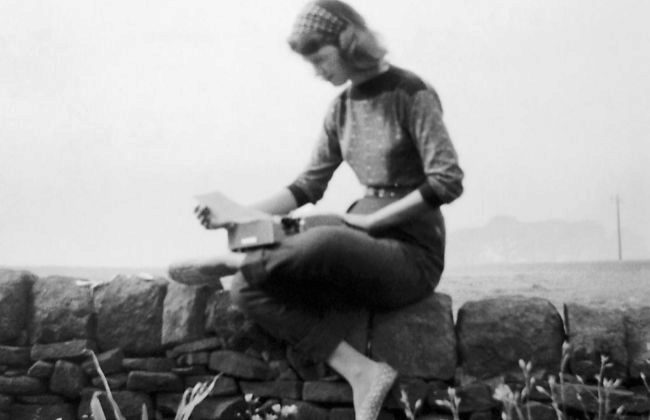Sylvia Plath's work has not been recognized. This sentence, product of more of a sensation than a verifiable fact - what is this mysterious recognition for a writer, after all? - is repeated every time you have to talk about it. It does not lack truth, but it is not quite true either: Plath is a read poet, her verses are famous (the lines "Dying / is an art, as everything / I do exceptionally well ", of the poem Lady Lazarus, are quoted, known, as popular as poetry can be in these times), his life was taken to the cinema by Gwyneth Paltrow and Daniel Craig (the film is very lazy, but the biopics are usually disappointing) and The glass bell is an admired novel, importantly, a breaking point in the literature of mental disorder, a ruthless but distant chronicle of psychic collapse without frills or romanticizations.
Ariel , her posthumous collection of poems, is almost unanimously considered a masterpiece, and those who dismiss it in general play iconoclasts or compare it with the achievements of her husband, Ted Hughes.
It's Hughes, here, the problem. The obstacle The reason why Plath seems in the background because, when he is named, the figure of that dark man of an overwhelming talent appears; a shocking character, with his two suicidal wives and his two dead children . The handsome and demonized man, who brought misery and cruelty. Isn't this an exaltation of your damn figure? The comparison is always the same: for Sylvia, Hughes was his Heathcliff, the irresistible and lethal character of Wuthering Heights.
Let's move on to the facts: Sylvia Plath took her own life on February 11, 1963. She was 30 years old . He lived alone with his children in an apartment on Fitzroy Road No. 23, Primrose Hill, where the poet William Butler Yeats had previously lived.
There, newly separated, surrounded by a horrible winter, the water solidified in the pipes, many people asked permission from their rich friends to bathe, London was sad and dreary, wrote in two months the magnificent and fierce poems of Ariel . For example, Filo , one of the most prophetic: « The woman is finished./ The body / dead shows the smile of realization, / in the scrolls of the tunic flows / the illusion of a Greek need, / Feet / bare they seem to say: this is how far we are, it's over »
After the months of frantic creation, Sylvia Plath committed suicide by putting her head in a gas oven while her children slept in a nearby room that she had isolated from the escape and where she had left cups of milk and bread. This terrible death, with the children protected, she so young, alone and out the snow, and Ted Hughes with a new partner, the bright and beautiful Assia Wevill, froze her like that merciless cold in a final scene. He stopped her in the photograph of the victim. Even his friend A. Alvarez, who wrote the essay on the suicide The Wild God (with the death of Plath as a trigger), takes away his final decision: he believes, for a series of small clues - an Australian nanny who had to go that day, the deafness of a neighbor who did not hear the bell - who was killed by mistake. I wanted to get attention.
Plath had already tried to die in 1953: then, after a few months of depression at Smith, his college in the US, he slipped like a sick animal under his mother's house and swallowed a significant amount of pills.
Alvarez speaks and writes from affection, but also underestimates her. She is amazed because she was an "exemplary mother," that category so empty and so distressing for women. She believes that her poetry tears her out of the place expected for a woman, but she is astonished when she prefers death to domesticity. Who knows, except the suicide bomber, why dying seems the best option? «I am furious with myself. My costumes no longer protect me , ” he wrote to his friend Ruth Tiffant Beuscher in July 1962.
After Plath's death, paradoxically, his followers did their best to make his work buried under the weight of that young death. Hughes became the villain, the toxic man who destroyed the parts of Sylvia's diary where he was mentioned (supposedly to protect the children Frieda and Nicholas, -the young man also committed suicide, in 2009-), the one who took control of the work of his wife from the shadows of a relative retreat, participating in the editions of newspapers and letters. The majority considered this action a censorship and the truth is that any biographer who wanted to write about Sylvia Plath had to go through the Hughes, not only for Ted but for Olwyn, sister of the poet and literary agent of Plath's legacy since the mid-60s.
Ted Hughes died in 1998. There are no more excuses to remain fixed in the shadow that his image projected and not to insist on that final scene, which defines Plath for his death, not for his life and for his magnificent work. The recent reissues in Spanish proposed by Random House Literature - Mary Ventura and the ninth kingdom , The bell of glass and the anthology of poems I am vertical, but I would rather be horizontal - serve to read behind the tragedy and rescue attempts that only they portray Plath as a miserable , taking away all the power of her bravery and her challenging talent.
According to the criteria of The Trust Project
Know more- culture
- poetry
- literature
TendènciesA autumn with Sylvia Plath
Literature 'Space', the graphic tribute to the poetry of Juan Ramón Jiménez
A VILLANO IN MADRID Peter Handke in Linares

